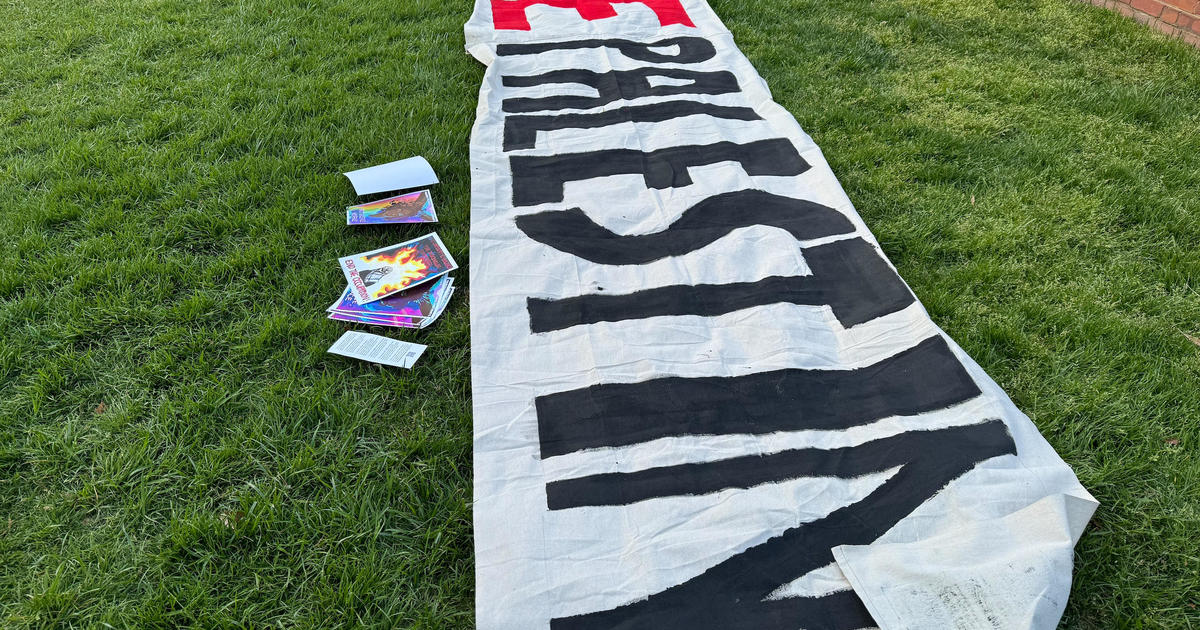Parents Of UMD Student Who Died Say Health Center Didn't Test For Adenovirus
COLLEGE PARK, Md. (CBS News/WJZ) -- The parents of a University of Maryland student who died after contracting the adenovirus are speaking out about mold conditions on the campus that they believe contributed to her death.
Freshman Olivia Paregol died last week after complaining about flu-like symptoms.
Her parents, Ian and Meg Paregol, also tell CBS News the university health center did not test their daughter for the adenovirus despite her symptoms and learning of their first case of the illness the day before Olivia's visit.
UMD Student Dies Of Adenovirus-Related Illness
The university has confirmed that three more UMD students tested positive for adenovirus over the Thanksgiving break, bringing the total number of cases to nine.
The CDC has not indicated that there's any link between mold and adenovirus.
The school has acknowledged that mold can make people more susceptible to viral infections, but they said there is no consistent connection to the outbreak of adenovirus.
3 More University Of Maryland Students Test Positive For Adenovirus
Olivia was diagnosed with Crohn's disease before coming to college and took medication, which her father says weakened her immune system. Within weeks of starting school, he says Olivia began expressing concerns about mold in her dorm room in Elkton Hall.
"You could see [the mold]. Oh yeah, it was on her shoes… It was on her table. It was everywhere," Ian said.
"Yeah, it would collect on their shoes overnight," Meg added.
The university said it began receiving "higher than normal reports of mold" throughout the dorm beginning on Sept. 16. Five days later, officials began relocating more than 500 students from Elkton Hall until crews finished cleaning on Oct. 10.
"There should've been greater disclosure and transparency about the existence of the mold," Ian said. "It was just kind of brushed off – 'Oh, we're going to clean it. Don't worry.'"
The university told CBS News that beginning Sept. 16, there were nearly 20 emails sent to the community to share information about mold in the residence halls.
But that wasn't the only issue, according to Olivia's parents.
University officials said they learned about the first case of adenovirus on Nov. 1. The next day, Olivia went to the university health center complaining of difficulty breathing. No one, the Paregols said, tested her for adenovirus. However
"They don't kind of connect that one dot on, 'Hmm, this student is immunosuppressed, she has all the symptoms of adenovirus, we had a diagnosis of adenovirus, oh she just – we'll just send her home.'"
Olivia was eventually treated at Johns Hopkins Hospital, but died on Nov. 18. Her parents said doctors told them if they had known she had adenovirus, they would have given her a different treatment – something her parents believe could have saved Olivia's life.
"We've cried for days and then we go numb and then we are in disbelief. And it's just – no one should have to do this," Ian said.
They buried their daughter three days ago.
"You can't imagine, you know, having to go and pick out a plot for your daughter," Ian said. "It's not the way it's supposed to work."
"I think she found a real place for herself," Meg said of her daughter who was studying criminology at the university. "That brings me a lot of comfort knowing that she was finding joy in life."
The University of Maryland said the illnesses related to adenovirus on campus have been detected both in students living on and off campus and among students in dorms affected and not affected by mold.
Follow @WJZ on Twitter and like WJZ-TV | CBS Baltimore on Facebook



